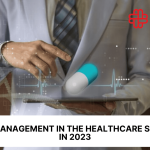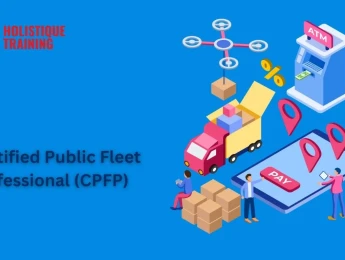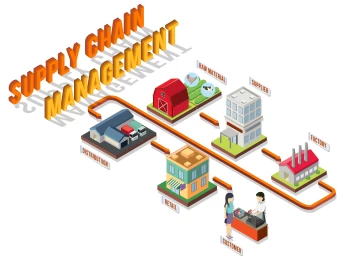Healthcare organisations are responsible for managing confidential data relating to the organisation itself and the patients it cares for. Incorporating specialised medical systems and technologies can greatly aid in the efficiency of managing data and can lead to data being even more protected than it would be in a physical form.
Medical system management begins with understanding the type of healthcare information the organisation holds, as this will heavily dictate the type of systems that will be necessary. Management will also review the resources required to establish and maintain all systems by monitoring performance in comparison to the financial cost of maintaining them.
Another crucial factor of medical systems management is ensuring that all medical systems are completely secure. There are various ways to guarantee data security, including physical measures such as CCTV and technical measures such as firewalls and encrypted data. The laws and regulations surrounding medical systems set the standard for what is to be expected from systems, and that includes the required security measures.
Upon completion of this course, participants will be able to:
- Understand the importance of utilising effective medical systems within a healthcare organisation.
- Explore the various types of medical systems and their purposes and benefits.
- Identify different types of records and data collected within the organisation and describe their necessity.
- Plan, strategise and implement medical systems to automate tedious tasks to increase productivity.
- Ensure all medical systems are completely secure to minimise potential data leaks and breaches in confidentiality.
- Assess the laws and regulations surrounding medical systems to guarantee full compliance throughout the system lifetime.
- Smoothly transition physical records and documents into an electronic system.
This course is designed for anyone within a healthcare organisation who is responsible for digitising processes and systems. It would be most beneficial for:
- Operations Managers
- Hospital Directors
- Clinical Managers
- Finance Analysts
- Information Managers
- Healthcare Engineering
- Pharmaceutical Directors
- HR Personnel
This course uses a variety of adult learning styles to aid full understanding and comprehension. Participants will review examples of medical systems from established organisations to highlight key aspects of the system, including its productivity levels and specialised security features.
They will be provided with all the necessary tools and equipment to partake in the learning methods and exercises successfully. These learning exercises include presentations, group discussions, individual activities, and role-playing activities. This combination of individual and group exercises allows the participants to fully develop their knowledge of the taught content and demonstrate all relevant practical skills.
Day 5 of each course is reserved for a Q&A session, which may occur off-site. For 10-day courses, this also applies to day 10
Section 1: Fundamentals of Medical Systems Management
- Defining what a medical system is and its necessity within healthcare.
- Exploring the history of medical systems and how they have evolved into what we know today.
- Understanding the different types of healthcare information and documents – patient and administrative.
- Evaluating current systems to identify areas for potential improvement and recognise areas with a complete lack of productivity.
Section 2: System Regulations and Standards
- Investigating national and international laws and regulations surrounding patient and data confidentiality. – Human rights, data protection, HIPPA and more.
- Analysing other healthcare organisations use of medical systems and how they have led to success.
- Ensuring compliance of all systems to confidentiality laws and legislation.
- Aligning industry standards to patient demands and organisational goals when establishing a medical system.
Section 3: System Security
- Explaining the vitality of incorporating high levels of security for medical systems.
- Identifying potential threats to healthcare information and what may influence their probability.
- Providing physical safeguarding measures to prevent initial system access – CCTV, security guards, restricted access locations and more.
- Implementing technical safeguarding measures to prevent further system access – strong use of passwords, user authorisation, encrypting data and more.
Section 4: Implementation and Support
- Utilising various methods of innovative thinking to explore potential system options.
- Establishing short-term and long-term goals for the system in alignment with the organisation’s overall goals.
- Creating plans detailing the goals, implementation strategies and tools to monitor performance.
- Acknowledging potential barriers throughout the transition from physical to electronic and strategising ways to navigate these.
Section 5: Technology and IT Governance
- Merging other essential technologies to the medical system to aid in function and accessibility for necessary personnel.
- Understand the information system architecture and how this can influence the assisting technologies needed.
- Ensuring reliable data communications across all systems.
- Managing the IT and technology budget to fully support the medical systems.
Upon successful completion of this training course, delegates will be awarded a Holistique Training Certificate of Completion. For those who attend and complete the online training course, a Holistique Training e-Certificate will be provided.
Holistique Training Certificates are accredited by the British Assessment Council (BAC) and The CPD Certification Service (CPD), and are certified under ISO 9001, ISO 21001, and ISO 29993 standards.
CPD credits for this course are granted by our Certificates and will be reflected on the Holistique Training Certificate of Completion. In accordance with the standards of The CPD Certification Service, one CPD credit is awarded per hour of course attendance. A maximum of 50 CPD credits can be claimed for any single course we currently offer.
- Course Code IND05-126
- Course Format Classroom, Online,
- Duration 5 days














